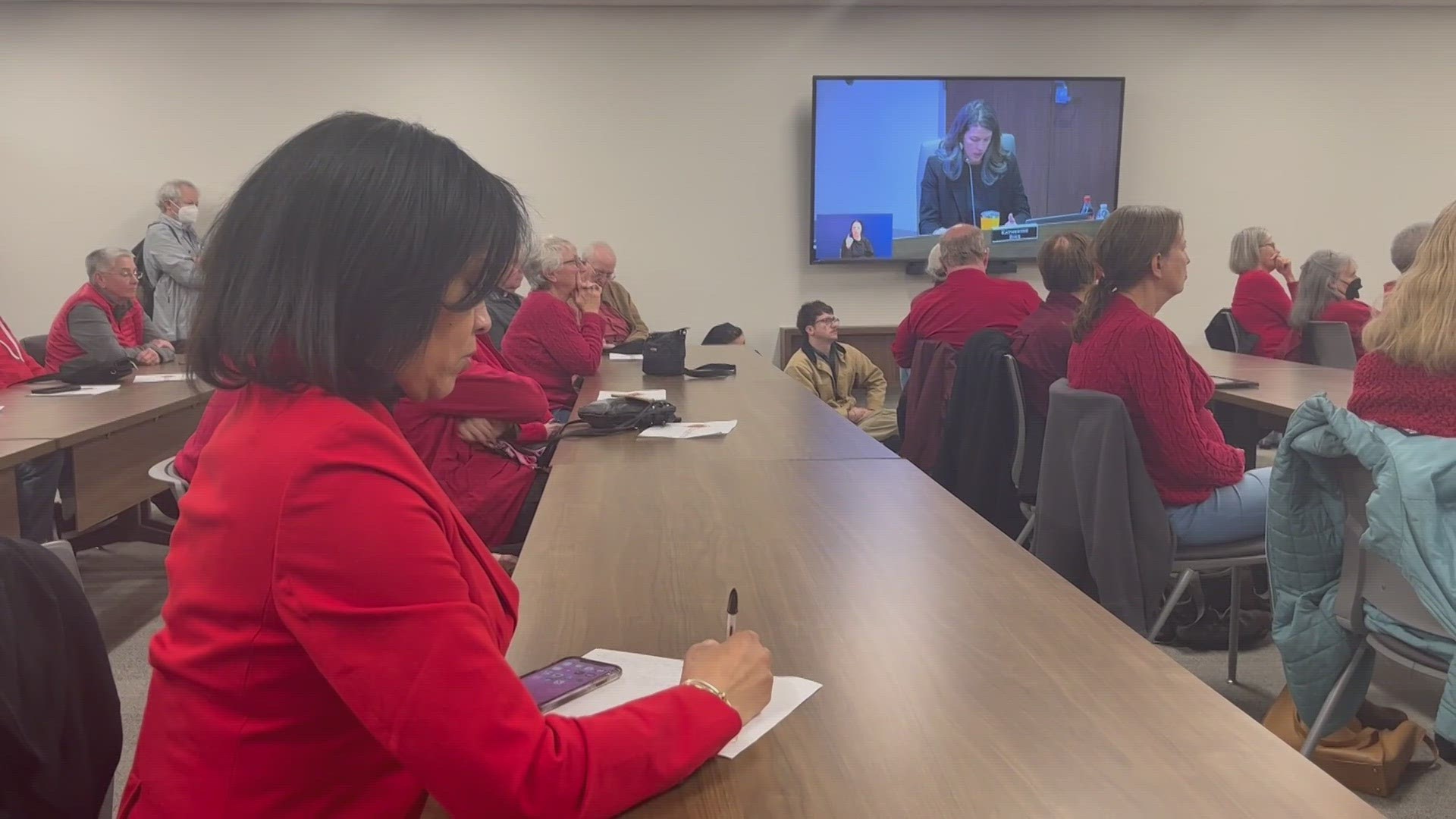KNOXVILLE, Tenn. — Knox County Schools met on Thursday to discuss an agenda with at least two significant items: one revising the school calendar to make time for possible snow days, and the other taking symbolic opposition against a state proposal to use public funds for non-public education.
The proposal regarding the school system's calendar passed Thursday evening. It effectively converts early-release and in-service days into normal teaching days, opening up time in the schedule in case KCS needs to cancel class due to inclement weather. The plan effectively opened up enough time for two inclement weather days.
Then, KCS started discussing a resolution that would symbolically oppose a proposal from Governor Bill Lee that would create a program in which families could use public funds for non-public education. it calls for state lawmakers to seek ways to "strengthen public schools throughout the state."
The program would offer vouchers families could use on expenses at private schools, faith-based schools or charter schools. The schools would not need to follow state education guidelines.
Opponents said the proposal was effectively a way to supplement private education with public funds, and said the money should be used instead to support public schools. Supporters said the proposal was meant to provide more choices for a child's education.
Jennifer Owen, a board member, said the resolution was brought as a response to keep government entities transparent and accountable. She also said if public schools do not meet the needs of students, then local school systems should work to change instead of students moving to other types of education.
John Butler, another board member, said after reviewing the voucher program's application process, it seemed more like an opportunity to use public funds rather than a choice. He also said some people who supported the program used it to go to private schools offering classes that could not be legally taught in public schools, such as classes specifically on a particular religion.
"A number of the schools have a philosophy that they follow, and I think they should have a right to do that, but I don't think we should use public funds in that way," he said. "I think it was 17% of students in Knox County attend private school, and those 17% that are already going to private schools, if this passes, they would be eligible to use vouchers ... You already have a waiting list at the top schools. It doesn't seem like this would really help Knox County as a whole."
Katherine Bike, a board member, also said she spoke with parents of students already in private schools who were concerned about their tax money going to schools without public oversight.
"I think this is political rather than actual function of accomplishing anything," said Steve Triplett, a board member. "I see no conflict in supporting Knox County Schools providing the very best education they possibly can, and at the same time giving parents the freedom and choice."
Kristi Kristy also said whether people support or oppose vouchers, Knox County Schools were not the elected body that would decide whether to implement them. Susan Horn, another board member, said people opposing the school voucher proposal should reach out to state lawmakers instead of KCS and said she would vote against the resolution because some of her constituents supported the school voucher program.
"I think it's important as an elected body that we take positions on some issues," said Daniel Watson, a board member. "Relationships are important, but any relationship I may have with an elected official is my relationship, not the Knox County School Board's."
Celeste Urdal, the KCS student representative, spoke too, saying she wanted public money that would go towards vouchers to instead go towards increasing teacher salaries, funding the humanities or other public programs.
The resolution opposing Lee's proposed universal school voucher program failed in a 4-4 vote on Thursday. Similar resolutions opposing the school voucher program passed in other East Tennessee school boards, such as Blount County.

